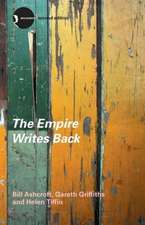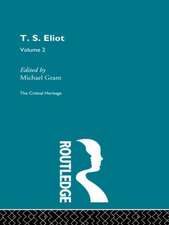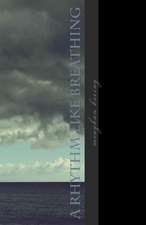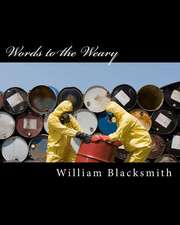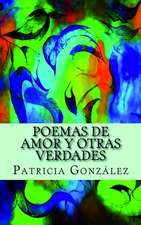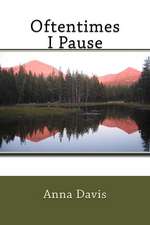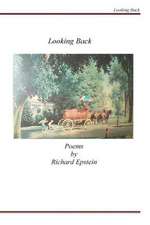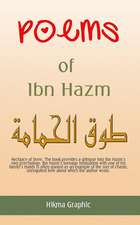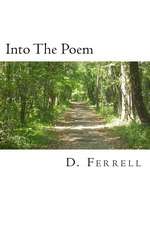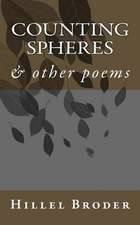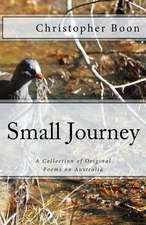Ezra Pound
Editat de Eric Hombergeren Limba Engleză Paperback – 14 dec 2009
This second set compliments the first 68 volume set of Critical Heritage published by Routledge in October 1995.
| Toate formatele și edițiile | Preț | Express |
|---|---|---|
| Paperback (1) | 457.66 lei 6-8 săpt. | |
| Taylor & Francis – 14 dec 2009 | 457.66 lei 6-8 săpt. | |
| Hardback (1) | 2210.92 lei 6-8 săpt. | |
| Taylor & Francis – 6 mar 1997 | 2210.92 lei 6-8 săpt. |
Preț: 457.66 lei
Nou
Puncte Express: 686
Preț estimativ în valută:
87.57€ • 91.43$ • 72.48£
87.57€ • 91.43$ • 72.48£
Carte tipărită la comandă
Livrare economică 04-18 aprilie
Preluare comenzi: 021 569.72.76
Specificații
ISBN-13: 9780415568944
ISBN-10: 0415568943
Pagini: 520
Dimensiuni: 138 x 216 x 27 mm
Greutate: 0.96 kg
Ediția:1
Editura: Taylor & Francis
Colecția Routledge
Locul publicării:Oxford, United Kingdom
ISBN-10: 0415568943
Pagini: 520
Dimensiuni: 138 x 216 x 27 mm
Greutate: 0.96 kg
Ediția:1
Editura: Taylor & Francis
Colecția Routledge
Locul publicării:Oxford, United Kingdom
Public țintă
GeneralCuprins
Introduction; Note on the Text; Meeting Ezra Pound; 1: William Carlos Williams; 2: Edward Thomas; 3: D. H. Lawrence; 4: W. B. Yeats; 5: T. S. Eliot; 6: Harriet Monroe; A Lume Spento; 7: Unsigned notice, Book News Monthly; Personae; 8: Unsigned review, Evening Standard and St. James's Gazette; 9: W. L. Courtney, unsigned review, Daily Telegraph; 10: F. S. Flint, review, New Age; 11: Edward Thomas, ‘A New Note in Verse' Daily Chronicle; 12: Edward Thomas, from ‘Two Poets', English Review; 13: Unsigned review, Observer; 14: Unsigned review, Bookman (London); 15: Unsigned review, ‘Heresy, and Some Poetry', Nation (London); 16: Rupert Brooke, review, Cambridge Review; 17: A new poet makes his debut; Exultations; 18: Edward Thomas, ‘The Newest Poet', Daily Chronicle; 19: Unsigned review, Spectator; 20: Unsigned review, Observer; 21: F. S. Flint, ‘Verse', New Age; 22: Unsigned review, Nation (London); The Spirit of Romance; 23: Unsigned notice, Nation (New York); 24: Edward Thomas, review, Morning Post; Provença; 25: Floyd Dell, review, Chicago Evening Post; 26: H. L. Mencken, review, Smart Set; 27: Reverberations in America; 28: J. B. Yeats to his son; Canzoni; 29: Charles Granville, ‘Modern Poetry', Eye-Witness; 30: Unsigned review, Westminster Gazette; 31: G. D. H. Cole, initialled review, Isis; 32: J. C. Squire, review, New Age; 33: F. S. Flint, review, Poetry Review; Sonnets and Ballate of Guido Cavalcanti; 34: Arundel del Re, review, Poetry Review; 35: John Bailey, unsigned review, The Times Literary Supplement; Ripostes; 36: Harold Child, unsigned review, The Times Literary Supplement; 37: F. S. Flint, review, Poetry and Drama; 38: Ezra Pound in Chicago; 39: Pound and Poetry: a letter to Nation (New York); 40: Pound and Poetry: Wallace Rice in Dial; 41: Pound and Poetry: Harriet Monroe replies; Cathay; 42: Ford Madox Hueffer, ‘From China to Peru', Outlook; 43: A. R. Orage on the thought and form of Cathay; 44: Carl Sandburg, ‘The Work of Ezra Pound', Poetry; 45: William Marion Reedy on the position of Pound; Gaudier Brzeska: A Memoir; 46: Unsigned review, Dial; Lustra; 47: The problem of getting published, 1 A postcard from Elkin Mathews's reader; 48: The problem of getting published, 2 The memorandum of agreement; 49: Kate Buss, ‘Ezra Pound: Some Evidence of his Rare Chinese Quality'; 50: A poet in rebellion against emotion; 51: Louis Untermeyer on a poet in pantomime; 52: Babette Deutsch, ‘Ezra Pound, Vorticist' Reedy's Mirror; 53: Maxwell Bodenheim, ‘A poet's Opinion', Little Review; 54: J. B. Yeats to John Quinn; 55: Joseph Conrad to John Quinn; 56: A. R. Orage on Ezra Pound: His Metric and Poetry; Pavannes and Divisions; 57: Louis Untermeyer, ‘Ezra Pound—Proseur', New Republic; 58: Conrad Aiken, ‘A Pointless Pointillist', Dial; 59: Emanuel Carnevali, ‘Irritation', Poetry; 60: W. G. Hale on Pound's failings as a Latinist; Quia Pauper Amavi; 61: A. R. Orage on Pound, Propertius and ‘decadence', Readers and Writers (1917-1921); 62: Grumbles about the ‘Homage', New Age; 63: Pound's defence of the ‘Homage'; 64: Robert Nichols, ‘Poetry and Mr. Pound', Observer; 65: A reply from Wyndham Lewis; 66: Pound defends the ‘Homage' again; 67: John Gould Fletcher on the decline and fall of an expatriate; 68: Harold Monro, from Some Contemporary Poets; 69: May Sinclair, ‘The Reputation of Ezra Pound', North American Review; Instigations; 70: Van Wyck Brooks on Pound as expatriate; 71: H. L. Mencken, notice, Smart Set; 72: ‘W. C. Blum' [Dr James Sibley Watson], ‘Super Schoolmaster', Dial; Hugh Selwyn Mauberley; 73: Unsigned review, The Times Literary Supplement; 74: Edwin Muir, review, New Age; Umbra: The Early Poems of Ezra Pound; 75: Edwin Muir, review, New Age; 76: A. R. Orage on Pound's departure from London; Poems 1918-21; 77: Maxwell Bodenheim, ‘The Isolation of Carved Metal', Dial; 78: John Peale Bishop, ‘The Intelligence of Poets', Vanity Fair; 79: Brian Howard on Pound's ‘clean, white spirit of disinfection'; 80: Harriet Monroe, a retrospective view of Pound; A Draft of XVI Cantos; 81: Glenway Wescott, review, Dial; Personae: The Collected Poems of Ezra Pound; 82: Ford Madox Ford, ‘Ezra', New York Herald Tribune Books; 83: William Carlos Williams on Pound's exile; 84: R. P. Blackmur on Pound's ‘Variety of Masks'; Selected Poems; 85: John Gould Fletcher, the neglected assessment; 86: Henry Bamford Parkes on the theories and influence of Pound; 87: A supervision with Dr Leavis on ‘Mauberley'; A Draft of XXX Cantos; 88: Dudley Fitts, ‘Music Fit for the Odes', Hound & Horn; 89: Eda Lou Walton on some types of obscurity; 90: Geoffrey Grigson, ‘The Methodism of Ezra Pound', New Verse; 91: D. G. Bridson, review, New English Weekly; 92: Marianne Moore, review, Criterion; Guido Cavalcanti Rime; 93: Etienne Gilson, review, Criterion; 94: John Sparrow, doubts about Pound and ‘Mauberley'; Make It New; 95: G. M. Young, review, Observer; 96: G. K. Chesterton, review, Listener; 97: Bonamy Dobrée, review, Criterion; Eleven New Cantos XXXI-XLI; 98: Philip Blair Rice, ‘The Education of Ezra Pound', Nation (New York); 99: John Crowe Ransom, ‘Pound and the Broken Tradition', Saturday Review of Literature; 100: George Barker, review, Criterion; Homage to Sextus Propertius; 101: Stephen Spender, review, Spectator; 102: John Speirs, ‘Mr. Pound's Propertius', Scrutiny; The Fifth Decad of Cantos; 103: Stephen Spender, notice, Left Review; 104: Edwin Muir, review, Criterion; 105: Delmore Schwartz, ‘Ezra Pound's Very Useful Labors', Poetry; 106: James Laughlin IV, ‘Ezra Pound's Propertius', Sewanee Review; 107: Archibald MacLeish on Pound's revolutionary modernism; Guide to Kulchur; 108: Philip Mairet, review, Criterion; 109: Dudley Fitts on a bad boy strutting and shocking; 110: William Carlos Williams on Pound's great risk; Cantos LII-LXXI; 111: ‘H. H.' [James Laughlin IV] and ‘S. D.' [Delmore Schwartz], Notes on Ezra Pound’s Cantos: Structure and Metric; 112: Edwin Muir on the Cantos as a political poem; 113: Randall Jarrell on the deterioration of Pound; 114: Robert Fitzgerald, ‘Mr. Pound's Good Governors', Accent; 115: Paul Rosenfeld: ‘The Case of Ezra Pound', American Mercury; The Pisan Cantos; 116: Robert Fitzgerald: ‘“What thou Lovest Well Remains”', New Republic; 117: Louis L. Martz, review, Yale Review; 118: Reed Whittemore, review, Poetry; 119: William Carlos Williams, from a review, Imagi (Allentown, Pa.); 120: C. M. Bowra, ‘More Cantos from Ezra Pound', New Statesman and Nation; 121: Richard Eberhart on the character of Pound's work; 122: John Berryman, ‘The Poetry of Ezra Pound', Partisan Review; 123: Malcolm Cowley, ‘The Battle Over Ezra Pound', New Republic; 124: Kathleen Raine on Pound's Confucius and modern poetry; 125: Ronald Bottrall, ‘The Achievement of Ezra Pound', Adelphi; Literary Essays; 126: Charles Tomlinson, review, Spectator; 127: Donald Davie, ‘Instigations to Procedures', New Statesman and Nation; 128: W. W. Robson, review, Blackfriars; 129: Roy Fuller, review, London Magazine; Section: Rock-Drill; 130: Noel Stock, review, Meanjin; 131: Randall Jarrell on the extraordinary misuse of extraordinary powers; 132: A. Alvarez, review, Observer; 133: Donald Davie, ‘Bed-Rock', New Statesman and Nation; 134: Philip Larkin, notice, Manchester Guardian; 135: Yvor Winters on the Cantos; Thrones 96-109 De Los Cantares; 136: Delmore Schwartz, ‘Ezra Pound and History', New Republic; 137: John Wain, ‘The Shadow of an Epic', Spectator; 138: Donald Hall, ‘The Cantos in England', New Statesman and Nation; 139: W. D. Snodgrass, review, Hudson Review; 140: John Holloway, review, London Magazine; 141: Louis Simpson, ‘A Swift Kick in the Rhetoric', Book Week; A Lume Spento and Other Early Poems; 142: Peter Levi, S.J., on the earliest Pound, Jubilee; 143: Colin Falck, review, Encounter; 144: Hayden Carruth, ‘On a Picture of Ezra Pound', Poetry; Drafts and Fragments of Cantos CX—CXVII; 145: Herbert Leibowitz, from ‘The Muse and the News', Hudson Review; 146: Derwent May, review, Observer
Descriere
Ezra Pound (1932-63). Writings include: Drafts and Fragments of Cantos CX-CXVII, Homage to Sextus, Prospertius. Volume covers the period 1904-1970. Extras: Includes a selected list of the printing Pound's works from 1908-1960.

